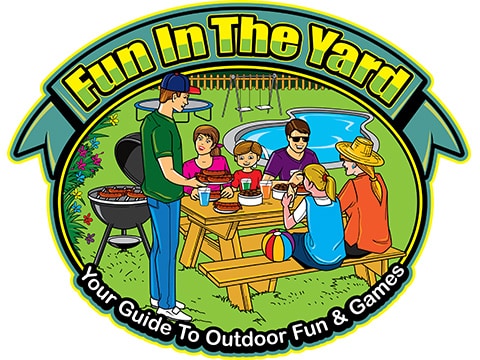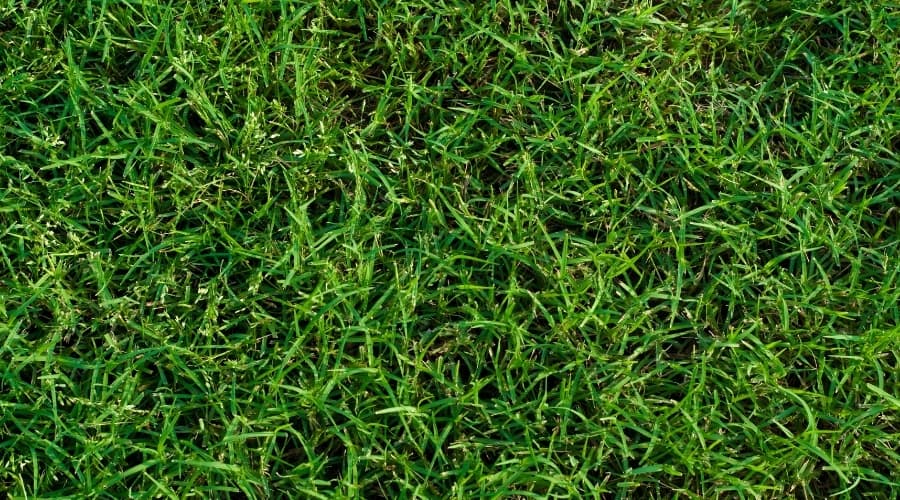Bermuda Grass is a serious survivor that out-competes many native species. With seed heads that are one to three inches long, this grass burrows into the earth and quickly grows within a week or two, creating extensive underground root networks that spread to every available area of ground.
Whenever temperatures reach over 68 degrees Fahrenheit, you can expect to see Bermuda grass. Here are 14 animals that eat Bermuda grass outside of Africa.
Table of Contents
What Animals Eat Bermuda Grass
Bermuda grass or Cynodon Dactylon is native to Africa. Many animals there eat this grass daily as part of their diet.
However, as an invasive species, Cynodon Dactylon is rampant in the United States. As a result, numerous native animals here dine on this somewhat problematic grass as well.
Here is a list of animals that eat Bermuda grass:
1. Armyworm Caterpillars
Armyworm caterpillars can refer to several invasive grass-eating species. However, they are most often attributed to the Armyworm Moth. You will start to see these tiny, voracious creatures appear on the tips of the grass blades.
Initially transparent, these caterpillars will eventually reach two thousand times their original size after devouring many stalks of grass. While they don’t require Bermuda grass specifically, they are happy to eat it.
2. Billbugs
Both adult and larval Billbugs eat grass. Like the Armyworm caterpillars, they don’t have a particular preference as to the type of grass but will eat Bermuda anytime they encounter it.
The cream-colored c-shaped larva is initially ‘invisible’ because they eat the roots of the grass, causing yellow and brown patches of dying grass to appear. In their adult form, Billbugs eat the grass stalks above ground.
3. Bison
According to NPS, Bison are generalist foragers. They will eat any grasses that happen to grow in their vicinity.
While this is great for getting rid of the top part of Bermuda grass when it grows in fields, it will not destroy the roots below. Sadly, chemical weed killers are not a good solution for fields and pastures where large herbivores live.
Like cows, bison have a four-chambered, ruminant digestive system. This means they can easily digest the cellulose in grasses.
Notably, bison can be picky eaters, chewing on the plants they prefer first, which leaves an interesting ‘quilted’ effect behind after they have moved through an area.
4. Buffalo
Buffalo, unsurprisingly, prefers to eat buffelgrass. However, like other large bovines, they will eat Bermuda grass when it is available.
As the only native turfgrass in the US, buffelgrass is highly recommended instead of the invasive, non-native species, and it is healthier for native herbivores.
However, if you have buffalo, they will graze on all the grass in the area.
5. Cows
Bermuda grass pastures are common for cows in North America. Introduced in the 1700s, this species is grazing resistant and regrows on its own with minimal effort.
According to the Noble Research Institute, during the growing season, cows can meet their nutritional needs by grazing on this abundant grass.
6. Deer
Deer are not picky eaters, but they should be. When they encounter species such as the invasive Bermuda grass, they will eat it.
Sadly, there is little to no nutritional value in this grass, and it is detrimental to deer health to eat too much. White-tailed deer, in particular, can starve quickly on a diet of Bermuda grass.
7. Dogs
If you have a dog and a yard with grass, then you know that dogs will eat the grass. This includes Bermuda grass.
Though many pet owners assume dogs eat grass because it causes vomiting, this is only true in about a quarter of grass-eating dogs.
The specific reason for eating grass is not known, but there are several theories. Additionally, dogs may eat grass for more than one reason.
Self-treating intestinal parasites, improving digestion, and fulfilling unmet nutritional needs are all popular theories.
Regardless, cellulose is not something that helps or hurts a dog, and it does not give them anything nutritionally necessary.
8. Goats
Although clover hay and alfalfa are among the most nutritious for goats, these grazing animals will eat almost anything.
However, the fact that they can doesn’t mean they should. That said, Bermuda grass pastures along with hay make for perfect grazing grounds for goats.
9. Grasshoppers
Grasshoppers will eat Bermuda grass, but they strongly prefer not to. Many species will avoid it altogether unless they are starving.
Usually, these long-legged herbivorous insects prefer weedy shrubs and other weed plants. Bermuda grass offers very little nutrition compared to their normal diet.
10. Horses
Overweight horses can and should eat Bermuda grass due to its low energy and high fiber content. Other horses can also eat this graze-resistant grass while they are in the pasture.
However, for many horses, alfalfa is a better option because it is high in calcium.
11. Larval Worms
Larval worms live their lives underground, eating the roots of whatever grasses they find. Bermuda grass is just one of many dietary options for these vital soil workers.
It’s best to let them do their job since worms fill a crucial ecological niche. According to NCRS, worms help “increase soil aeration, infiltration, structure, nutrient cycling, water movement, and plant growth.”
For adult worms, it is the microorganisms living within the soil that really matter.
12. Rabbits
Although Timothy or alfalfa hay is often the preferred food for pet rabbits, there’s nothing wrong with allowing them to eat Bermuda grass.
Wild rabbits often sup on this bountiful and easy-to-find grass in people’s yards and pastures. However, they also need vegetables and other nutrients, so it’s important to maintain an indoor rabbit’s dietary variety to keep them healthy.
13. Sheep
Sheep can eat improved Bermuda grass. However, if you plan to plant this grass for them to forage in your pastures, it is also important to seed white clover.
Sheep require both to meet their basic dietary needs during the growing season.
14. White Grubs
White grubs are the larvae or baby form of several species of beetles. Hatching underground and feeding on grassroots such as Bermuda grass is just part of the natural lifecycle for these tiny creatures.
If you want to cultivate a lawn from Bermuda grass, it can be a problematic pest.
Otherwise, there’s nothing wrong will simply allowing these species to munch on a few of your grassroots either in the yard or on a farm.
They won’t eat enough to damage grazing grounds significantly. However, you don’t want white grubs getting into a garden patch as they can damage other, more desirable species roots as well.
African Animals Who Eat Bermuda Grass
Gazelle, water buffalo, and wildebeests, along with many savannah herbivores, eat native Bermuda grass.
There are some species native to Africa that don’t eat grass despite being herbivores, but most of these are large, tall animals. Giraffes and elephants typically reach up into trees before searching the ground for a meal.
Helpful Tips To Know About Animals That Eat Bermuda Grass
Lots of animals can eat Bermuda grass. However, if you are trying to control this invasive species in your yard, some make better options.
Here are some helpful tips to know about Animals that eat Bermuda Grass.
- Most herbivores that can digest the fibers in grasses will happily eat Bermuda grass. However, it’s not as nutritious as native species and the animals’ natural diet. As a result, you may need to supplement their feed.
- Bermuda grass has the fastest growth rate of any warm season grass according to Pennington, so it can make a great ground cover where erosion is a problem, especially when you have lots of hungry herbivores. However, as an invasive species, you should be careful where you plant this grass.
- Africa isn’t the only place Bermuda grass grows naturally. Many tropical and sub-tropical countries are home to this species.
- Humans cannot digest grasses like Bermuda because of the high cellulose content. Even cooking will not break down this structure. Please do not eat the lawn.
Final Thoughts
Bermuda grass can be both a problem and a solution. For many animals that eat Bermuda grass, this is a fast-growing, self-replenishing source of food.
Regrettably, it can be a deadly invader that steals their nutrient-dense normal forage for some, like white-tailed deer.
Additionally, this grass is a highly competitive invader that will kill off native species for homes, gardens, farms, and wildlands.
If you want a healthy lawn, it’s better to plant native grasses and rip out Bermuda grass before it can spread, but for pastures, it can make excellent grazing-resistant food.

